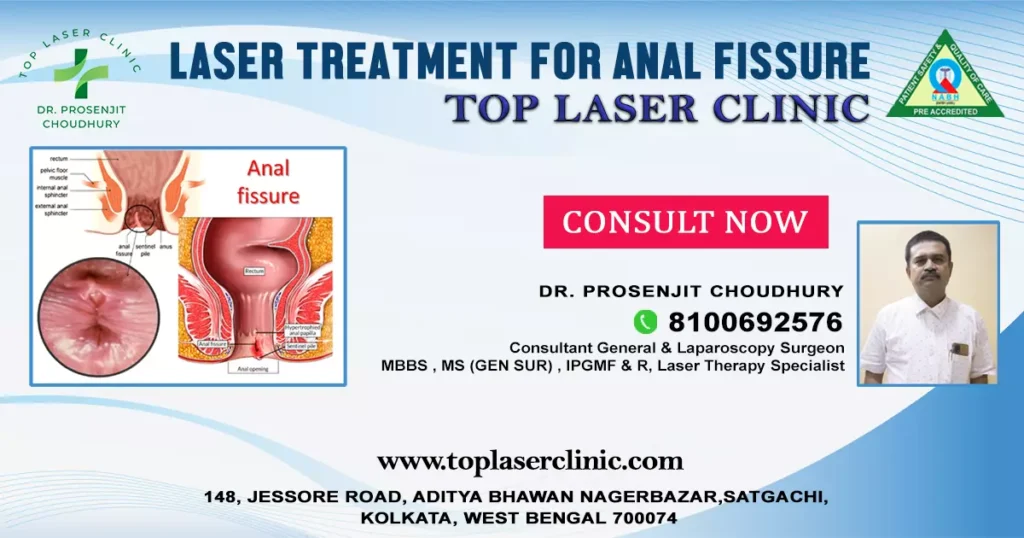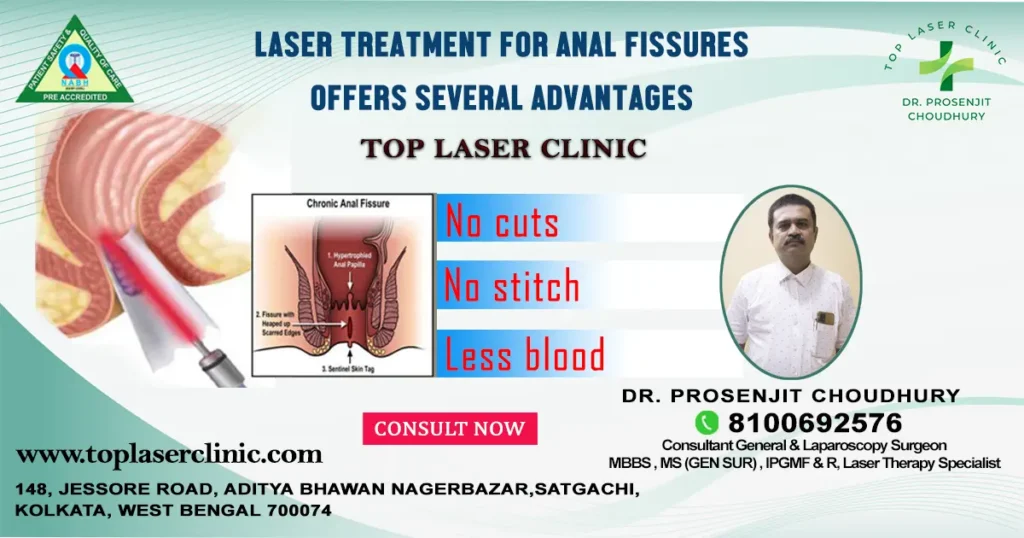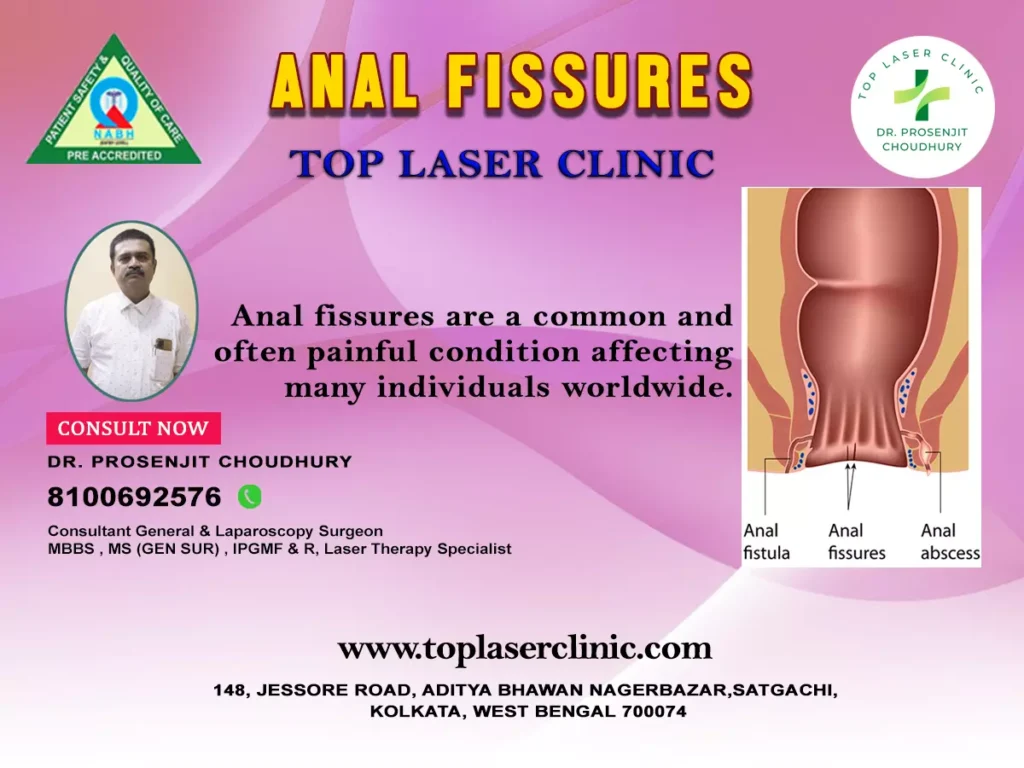
Table of Contents
Anal fissures are a common and often painful condition affecting many individuals worldwide. Anal fissures are small tears or cracks in the lining of the anal canal, which can cause pain, bleeding, and discomfort during bowel movements.
While there are various treatment options available for anal fissures, one approach that has gained attention and shown promising results is laser treatment. Laser treatment for anal fissures involves the use of a specialized medical laser to target and treat the affected area. This procedure is minimally invasive and is effective in promoting healing, reducing pain, and improving overall outcomes for patients with anal fissures.

Laser treatment for anal fissures offers several advantages compared to traditional surgical options. Laser treatment for anal fissures has shown great potential as an alternative to traditional treatments such as medical therapy or surgery.
Key advantages of laser treatment for anal fissure
One of the key advantages of laser treatment is that it is minimally invasive. This means that the procedure can usually be performed on an outpatient basis, without the need for a hospital stay. In addition to being minimally invasive, laser treatment for anal fissures has been found to have a shorter recovery time compared to traditional surgical options.

Patients often experience less pain and discomfort after laser treatment, allowing them to return to their daily activities more quickly. Moreover, laser treatment for anal fissures has been found to have a high success rate.
Research studies have shown that laser treatment can effectively promote healing and alleviate symptoms of anal fissures in a significant number of patients. This makes it a promising option for individuals who have not responded well to other treatments or prefer a less invasive approach. Additionally, laser treatment for anal fissures offers precise targeting and minimal damage to surrounding tissues.
Advantage of laser therapy
This reduces the risk of complications and ensures a more accurate and successful treatment outcome. In the last decade, there have been advancements in laser therapy for perianal lesions that have shown promising results in treating conditions such as perianal and rectal tumors, anal fistula, hemorrhoids, and anal fissure. This non-contact procedure has shown to reduce bleeding, pain, and discomfort in patients with perianal lesions.